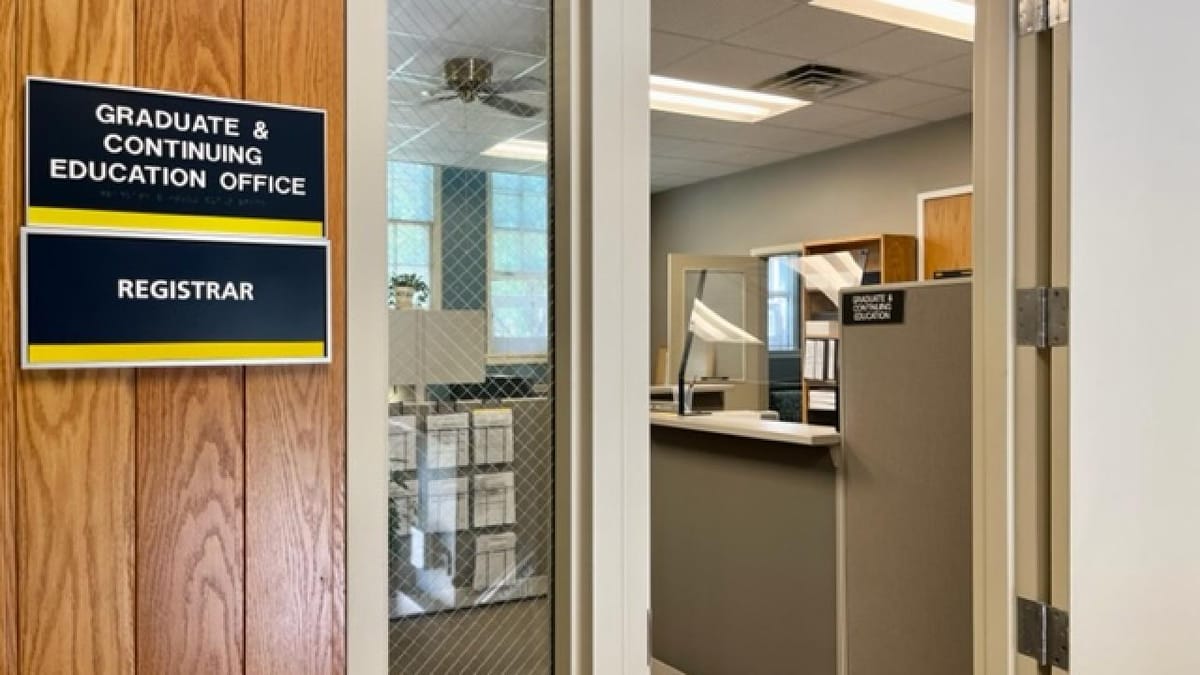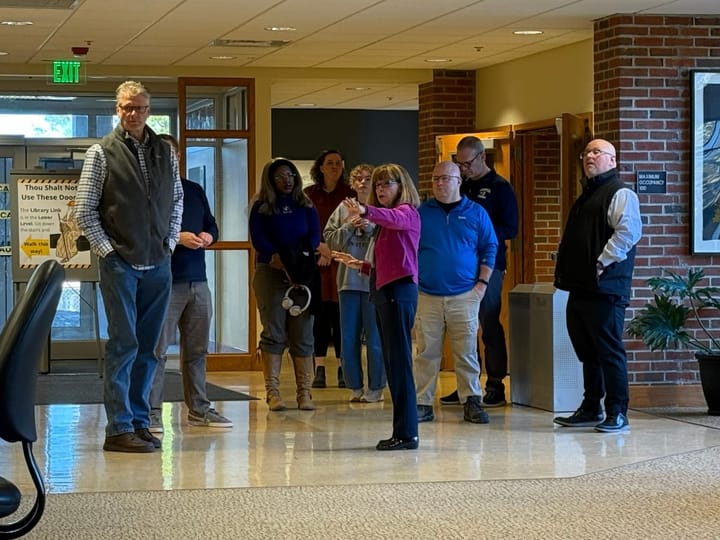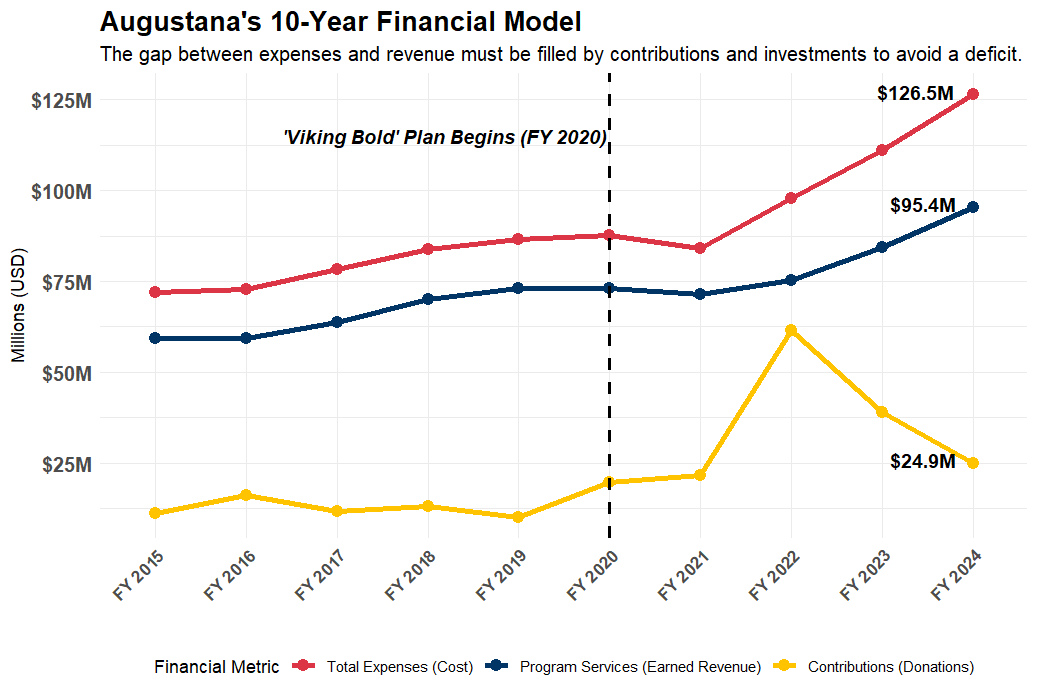Students, faculty encounter difficulties during fall 2025 registration

Liam Carriveau slumped over his desk, the blue-and-white glare of the registration website still burned into his eyes. A freshman music education major, he watched the minutes slip by as he tried, once again, to build a fall schedule, hoping this time the planner would not erase his progress. Stressed by the new course numbering system, Carriveau began to panic that he would not sort out the classes he needed before the deadline.
Carriveau’s stress, like that of many students, stemmed from a series of changes that complicated fall 2025 registration. Students and faculty across campus grappled with complications in the course numbering overhaul, a malfunctioning registration website, shifting class times and the impact of longtime Registrar Joni Krueger’s resignation.
“Almost everything was new, different and challenging,” Assistant Registrar Katelyn Musick said.
Musick said that the shift from a three-digit to a four-digit course numbering system was intended to reflect course difficulty and department affiliation with more clarity.
Krueger, prior to her departure in February, spearheaded the change to provide increased flexibility for adding courses in the future. The change was not a sudden one.
“The course renumbering project has been a couple of years in the works,” Musick said. “Our departments worked very diligently to get it done in time for the fall 2025 semester.”
Still, there was a learning curve that challenged many students and faculty.
“I was confused about why the numbers changed, and I did not know how to figure out which courses I needed to take,” freshman elementary education major Ally Sample said.
Matt Heesch, professor of exercise and sport sciences, agreed.
“The most common issue that students brought to me was prerequisites not showing up correctly,” Heesch said. “For example, they were registering for a course where they took the prerequisite with the old numbering system, and the system was saying they did not yet have the prerequisite and thus was not letting them register.”
Further, Professor of English and Journalism Jeffrey Miller said that professors had to relearn course codes they had used for years while also guiding students through the changes.
“The numbers change has been daunting,” Miller said.
The registration website itself presented additional hurdles. Students reported frequent crashes and missing visual indicators like green completion check marks and yellow progress triangles. Musick believes this is the one the biggest challenges students faced, particularly if they use the planner to track their degree progress, and acknowledged that the current system has its flaws. She said that these issues factored into the decision to implement a new registration system.
“When they took out the three-digit codes, the four-digit codes never made it back in, so I lost my plan for that entire year,” Carriveau said.
Carriveau also said he was confused about the new class times for next semester.
“There are way more slots on Tuesdays and Thursdays than in the past, and some of them end at different times now, which was frustrating to plan around.”
Much of the registration scramble stemmed from Joni Krueger’s resignation.
“Joni had decades of institutional knowledge, so losing her was no small loss,” Musick said. “One of the bigger challenges we are going to face as a campus is the loss of all of her knowledge — policies, best practices, those sorts of things she was the expert on.”
Musick is managing the transition alongside her colleague and fellow Assistant Registrar Julia Paluch, Interim Registrar Ann Kolbrek, and a team of student employees.
“I think the Registrar’s Office has learned its capacity,” Musick said. “We’ve learned that we have to take things one day at a time and focus on the bigger picture.”
For students and advisers, these issues mostly resulted in frustration over the class numbering system and the increased time needed to plan. Yet, Miller saw this as a good thing,
“It was more work, I will say that, but it focused my attention in a good way,” Miller said.
Heesch agreed and emphasized the importance of remaining vigilant and monitoring changes that might have impacted the faculty’s advisees.
Musick praised faculty members for their adaptability.
“Faculty did an awesome job of referencing the new course numbers and thinking about how their courses will apply towards Via Viking and not just the SOPHIA requirements,” Musick said.
These changes are part of a larger academic transition. Augustana is preparing to shift to a new core curriculum, Via Viking, and will soon replace its student information system with the “J1” platform, led by the Management Information Systems department.
These changes will bring a “fresh start” to Augustana, Musick said, referencing the administration’s decision to “bite the bullet and make all of the changes at once.”
Throughout the registration process, Musick stressed the importance of remaining optimistic and proactive.
“I know that it was a lot and it was confusing and overwhelming,” Musick said. “We are always here to help you, and we are all in this together. I understand that it was a lot of change at once, but you are not alone. Thank you for being patient with us.”
To help ease the transition, Musick recommended students visit the Fall 2025 Registration Hub, which offered FAQs, troubleshooting guides, course number maps and updated schedules. The course catalog was also updated to reflect the new changes.
Additionally, Peter Folliard, dean of the school of music, created a central Advising Hub with faculty resources, academic catalog information, SOPHIA and Via Viking curriculum details, and documents on the course renumbering, which Heesch said was “very helpful.”
As support systems continue to take shape, university leaders remain confident that the changes will ultimately benefit the student experience.
“It will be a couple of semesters of learning curves for students and faculty, but I am very, very optimistic for the future and what the student experience at Augustana will be like,” Musick said. “I think the new system will set up our students for a very well-thought-out liberal arts education.”



